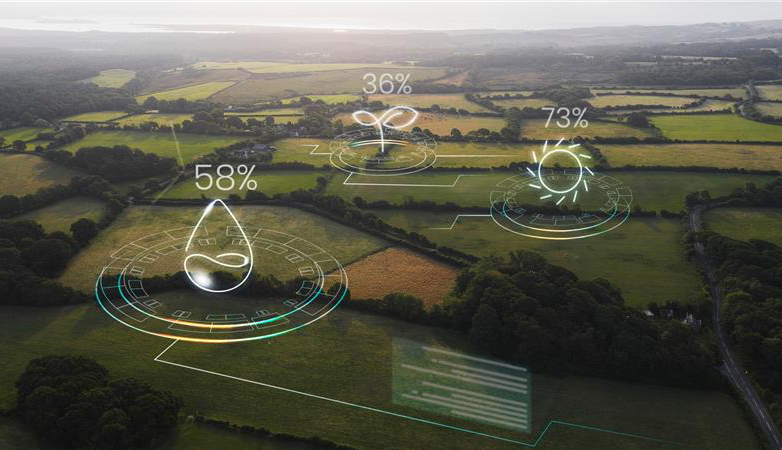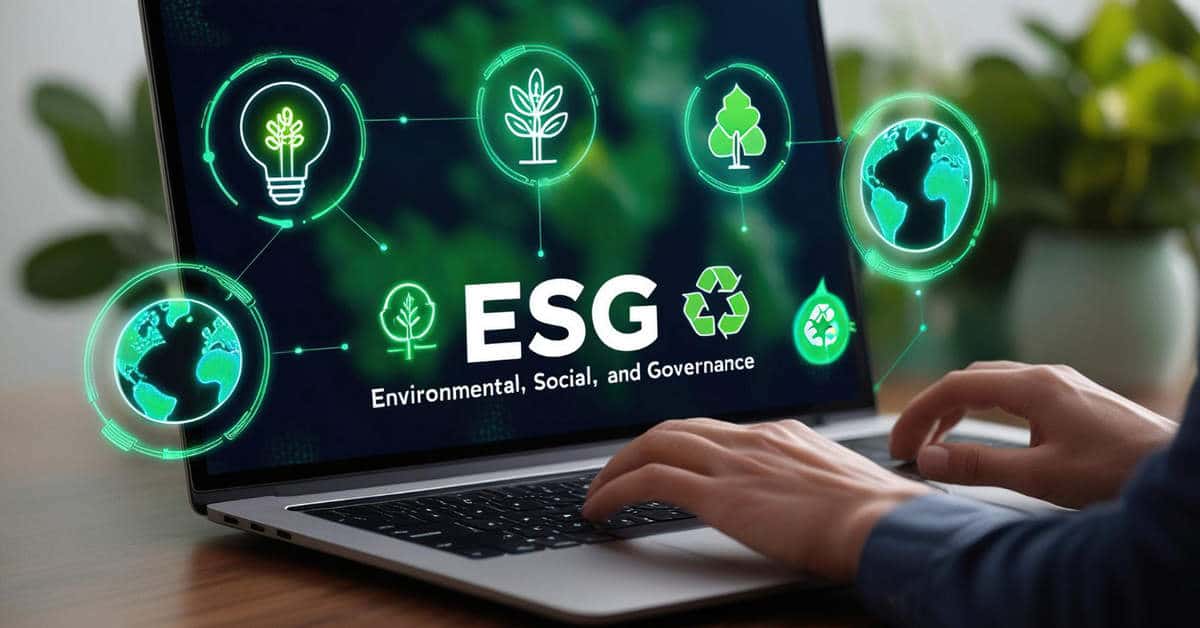BRSR Reporting in India’s First Year: Challenges and Insights

BRSR Reporting in India’s First Year: Challenges and Insights
Key Challenges in BRSR Reporting Preparation and Publication: Insights from India's First-Year Experience
- Authors
- Last Updated
- Tags
- Last Updated
- Authors
- Last Updated
- Tags
BRSR – An Overview
In 2021, the Securities and Exchange Board of India (SEBI) mandated Business Responsibility and Sustainability Reporting (BRSR) for the top 1000 listed entities in the nation. A handful of proactive companies voluntarily adopted BRSR reporting in the previous year, 2020-21, as a strategic move to ease into the mandatory regime. However, for most companies, 2021 marked their inaugural foray into BRSR reporting, presenting a range of challenges. One of the initial hurdles faced by companies was defining the scope and boundary of their reports, especially for those considering group-level reporting. Achieving consistency was another significant challenge due to the disparate availability of partial data across various locations.
Data management emerged as a particularly arduous aspect of BRSR reporting. Organizations with advanced data systems found that BRSR-relevant information was un-digitized. Many grappled with fragmented digital data, necessitating the onerous task of compiling and harmonizing data from diverse sources and formats. Some companies, limited to minimal HR and payroll data, confronted the formidable task of assembling comprehensive BRSR-related data for all nine National Guidelines on Responsible Business Conduct (NGRBC) Principles.
Alongside data collection, firms with multiple operational sites also faced the challenge of data consolidation. Parameters like electricity consumption and waste generation, typically recorded at individual locations, posed significant difficulties. Some companies appointed central coordinators for this process, while others invested in technological tools and software to facilitate smoother data collection and consolidation.
Companies only had the data that they were mandated to maintain as part of their compliance. However, BRSR reporting requirements included specific details not accounted for by companies. Hence, BRSR challenges pertaining to specific industries arose during the process. Infrastructure firms struggled with recording construction and demolition waste, often untracked at project sites. The detailed environmental data required by BRSR, such as water consumption and waste recycling were also quite taxing for service sector companies. Documenting water discharge, another BRSR requirement, was found to be equally challenging. BRSR also mandated the disclosure of grievance mechanisms for each stakeholder group, adding to the complexity.
Compounding these BRSR challenges was the need for comprehensive policies in alignment with the nine NGRBC principles, a step beyond the minimal requirements of the Listing Obligations and Disclosure Requirements (LODR). Companies that initiated their BRSR preparation early in the year had the advantage of time to develop these policies and mechanisms. In contrast, those starting closer to the reporting deadline encountered difficulties in ensuring the completeness and accuracy of their data. Moreover, the increase in workload for staff involved in BRSR data collection and reporting added to their already demanding schedules. Some companies mitigated this by organizing BRSR training for employees and engaging consultants to navigate through this intricate process.
In the following segment, we look at the department-specific hurdles encountered in BRSR reporting, along with the strategies that companies employed to overcome them. This insight offers an understanding of how organizations navigated these challenges.
Common Challenges in BRSR Reporting
As India moves into its second year of BRSR reporting, there are many lessons to be learned from the previous year. The sections below highlight several key areas of challenges faced by corporates in their BRSR reporting through our experience of working with the top 1000 companies. To address these effectively, we’ve outlined a series of challenges and comprehensive solutions to tackle it. The aim is to provide a comprehensive understanding of how companies can improve their ESG practices, ensure accuracy in BRSR reporting, and demonstrate commitment to sustainable and ethical business operations.
1. General BRSR Reporting
-
Managing Data Consolidation Complexities
The challenge of effectively managing data consolidation from multiple sites and office locations is a significant one, demanding attention to detail and data management protocols. Companies are advised to establish seamless alignment across departments and regions, recognizing the complexities of amalgamating data from diverse sources to ensure accuracy and prevent inconsistencies or duplications.
-
Ensuring Comprehensive Data Collection
Another critical issue is incomplete data collection, akin to having an incomplete dataset which significantly hampers the accuracy of BRSR reporting. Many companies have implemented a robust framework to ensure comprehensive data collection that includes all operational sites. Some companies updated their existing internal software to align with BRSR information, while some chose to implement complete technological solutions specifically for BRSR data.
-
Handling Frequent Changes in Single Point of Contact (SPOCs)
The challenge presented by frequent changes in Single Point of Contact (SPOC) is not insignificant. Such alterations can disrupt the continuity and flow of data collection, leading to potential delays and inconsistencies. Maintaining a stable and consistent point of contact is crucial for the integrity of the data collection process. Some companies establish BRSR working groups of 4-5 people, ensuring a steady flow of the reporting process.
-
ESG Awareness and Training
A fundamental hurdle faced by companies is the lack of ESG awareness among on-ground staff regarding BRSR reporting. Without a comprehensive understanding of and proper training on ESG objectives, the data collected can often be marred by inaccuracies or incompleteness. Enhancing ESG awareness and training among staff is fundamental to ensure the accuracy and completeness of data collection. Investing in comprehensive training and awareness programs is essential for ensuring that data reflects the true state of the company.

Related Read: The Ultimate Guide to EcoVadis Certification
2. Compliance and Legal Data
-
Developing an Effective ESG Framework
Developing an effective ESG framework within an organization is essential as the absence of a dedicated framework or responsible board members can hinder governance reporting. Moving towards establishing a robust ESG governance structure, outlining clear objectives and strategies in areas of environmental sustainability, social responsibility, and ethical governance, is crucial for embedding these values into the organizational culture and decision-making processes. Many companies have addressed these challenges by forming a board-level ESG Committee. Some companies have added an ESG governance layer to their existing structure by assigning responsibility to representative senior management personnel to drive BRSR reporting.
-
Identifying and Filling Policy Gaps
Policy gaps, particularly the absence of board approvals on existing policies, can lead to significant governance shortfalls. Addressing these gaps by developing comprehensive policies in line with all nine NGRBC principles, ensuring board approvals on existing policies, is crucial. External expert views can also be considered for a well-rounded approach to BRSR policy formation.
-
Grievance Mechanisms for Stakeholders
The lack of proper grievance redressal channels is a critical issue, potentially leading to reduced stakeholder trust and compliance challenges. Formulating grievance mechanisms for all stakeholder groups is important, despite having effective one-to-one channels of communication. Reporting on grievance mechanisms is mandatory in BRSR reporting, and establishing effective redressal mechanisms is essential for transparency and accountability. Most companies have grievance redressal methods in the form of point contact persons for stakeholders. However, companies have taken steps to formalize such mechanisms and publish them on their websites.
3. Environmental Data
-
Environmental Data Recording Gaps
Recording gaps, particularly in critical environmental metrics like water consumption, waste generation, or e-waste certificates, create significant voids in reporting. Establishing rigorous documentation processes and comprehensive data collection strategies across the organization ensures no critical metric is overlooked, maintaining the integrity of environmental reporting. Many companies have streamlined their environmental data collection from sites via their internal software. This reduces the duplicity of work, and assigning a maker-checker policy ensures correctness.
-
Recording of Waste-Related Data
Proper recording of waste-related data, including documentation and disposal mechanisms, is crucial. Extended on-site storage of waste without adequate documentation not only poses environmental challenges but also complicates BRSR reporting. Implementing stringent waste management protocols is imperative for both environmental stewardship and accurate reporting.
-
Reporting Fuel Consumption
The oversight in documenting details such as diesel or petrol usage for machinery, or not differentiating between mobile and stationary fuel source usage, can significantly skew emissions data, thus impacting the quality of the BRSR report. Addressing the lack of systems to record fuel consumption, as mandated by BRSR reporting, is essential. Precision in recording fuel consumption, differentiating between mobile and stationary fuel source usage, is vital for an accurate assessment of the carbon footprint and emission metrics. These factors can have a significant impact on the quality and reliability of the BRSR report.
-
GHG Emissions
Inaccurate emission data, whether due to unrecorded air emissions, auditing lapses, or incorrect measurement units, can lead to both regulatory and reputational risks. Emissions data accuracy is crucial for businesses as investors and ratings agencies are specifically interested in the GHG emissions performance of the company and value it greatly.
4. Human Resources Data
-
Employee Turnover
The BRSR has prescribed a formula for turnover calculation, which differs from the internal formulas used by many companies. This leads to hesitation from company management to repost using the BRSR formula, as turnover is a critical discussion point in many forums. However, companies have opted to use the specified formula for BRSR reporting to ensure compliance and enable cross-company comparisons, leading to greater transparency, a key goal of BRSR reporting.
-
Recording Training Sessions
The lack of comprehensive recording of training sessions adversely impacts ESG performance. Bolstering training programs and meticulous documentation is imperative to reflect commitment to the social aspects of ESG.

Related Read: The Rise of BRSR Reporting in India: Key Challenges, Implications and Strategies for Businesses
5. Operational Health and Safety Data
-
Health and Safety Incidents
Inconsistent recording of health and safety incidents, such as injuries or fatalities, across different sectors compromises the integrity of the BSRS report. Introducing measures to consistently record health and safety incidents across is crucial. Implementing a uniform and comprehensive reporting mechanism and assigning personal responsibility to the OHS team are the first steps in accurate reporting in the BRSR.
6. Value Chain Data
-
Involving Value Chain Partners in BRSR Reporting
Including value chain partners in BRSR and ESG reporting is important. The oversight of including these partners in governance policies or the lack of clear ESG targets can dilute the efficacy of governance initiatives. Extending governance policies throughout the value chain and setting definitive ESG goals ensures comprehensive governance practices.
7. Community Data
-
Reporting CSR Impact
Reporting on the impact and reach of Corporate Social Responsibility (CSR) initiatives is vital. While financial contributions to CSR are often well-documented, the absence of detailed beneficiary information or impact metrics can lead to gaps in reporting. Expanding documentation to include detailed beneficiary information and impact metrics is crucial for a complete understanding of CSR impact, addressing gaps often found in reporting.
Conclusion
India’s inaugural journey into BRSR reporting has been a revealing and transformative one for its corporate sector. The experience, rich in challenges ranging from data management complexities to environmental and HR data intricacies, has provided valuable lessons. Companies have navigated these challenges with strategic adaptations, implementing robust frameworks, enhancing ESG awareness, and fostering comprehensive compliance. The process has underscored the necessity of a holistic approach to BRSR reporting, one that necessitates meticulous attention to detail and an unwavering commitment to transparency and ethical governance.
As Indian corporations continue to evolve in their BRSR journey, these insights lay the groundwork for more refined and effective sustainability practices, heralding a new era of responsible business conduct that aligns with global standards and stakeholder expectations.
Why Choose InCorp Advisory?
We understand that BRSR Reporting can be a complex task for your company. Our team has in-depth experience in handling BRSR reporting requirements and projects for businesses across various sectors and stages. To learn more about BRSR Reporting or ESG services, you can write to us at info@incorpadvisory.in or reach out to us at (+91) 77380 66622.
Share
Share








































































